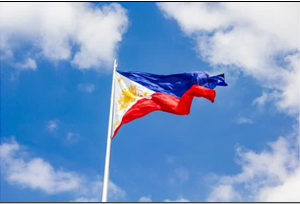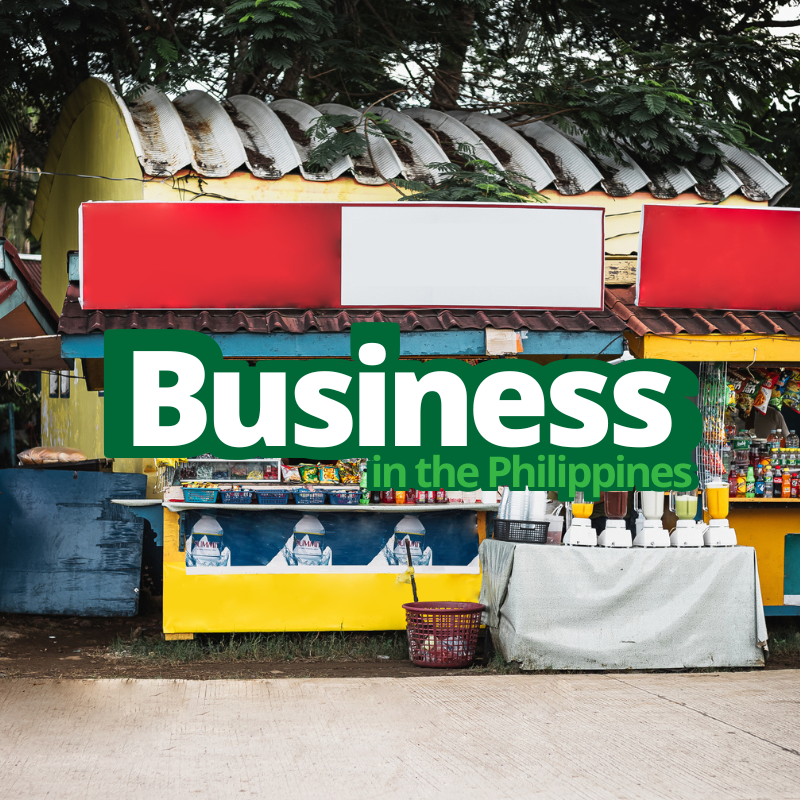No products in the cart.
Foreigners, Financial
What Challenges and Opportunities Await When You Open a Business in the Philippines as a Foreigner? 2022

FOREIGNERS SHOULD START INVESTING in the PHILIPPINES
With more people living in cities, a growing middle class, and a large young population, the Philippines’ economy is multiplying. This is due to strong consumer demand, supported by rising real incomes and a lot of money sent home by Filipinos working abroad. With the development of information technology and industrialization, business have changed into something different. Even though agriculture is the central part of its economy, this newly industrialized country still has many opportunities for Filipinos and Foreigners.
Mins to Read: 15 – 20 minutes
Age Bracket: 20-40

An investor isn’t simply someone who throws you a check and disappears behind the scenes, despite what you may assume. To “put money to use by purchasing or expending on something that possibly delivers advantageous returns” is what the term “invest” means at its core. But “invest” also implies “to utilize, provide, or commit time to accomplish.” An individual who invests in your business could write you a check. Still, the first meaning of “invest” is more speculative. Investment of both time and money is necessary for genuine investment.
Why is the Philippine market good for business?

Aside from being rich in abundance of natural resources, attractive tourist attractions, and diverse identity, the Philippines is also a favorable market to target for both domestic and international enterprises. Here are some of the reasons why:
Geographic Position.
Since the Philippines is located in the center of Asia, it is a strategic country that has played an essential role not just during the war period but also now in Trading and Commerce, resulting in faster economic and social development. It is within four hours’ travel time from the region’s leading capitals. It is a central access point to over 500 million people in the ASEAN MARKET, a gateway of international shipping and air aircraft appropriate for European and American firms, located at the crossroads of the eastern and western industries.
Strong and high-quality human resources.
Filipino labor is one of the most significant advantages the Philippines has over any other Asian nation. With a more substantial premium placed on education, the country’s literacy rate is 99%, the highest in the area. Aside from its original language, English is taught in all schools, making the Philippines the world’s biggest English-speaking nation.
Openness to New Opportunities.
Given its history of foreign colonists, most Filipinos are short-tempered and open to new ideas. Challenges and issues are often simply accepted and handled as destiny determines, even if there is nothing to be done about it. They are also resilient in the face of the country’s most significant disasters in recent years.
Filipinos are self-assured buyers.
Filipinos are world-class spenders, splurging on new clothing, trips, investments, and house upgrades. According to a Nielsen survey, the Philippines is the top spender in the world, surpassing even the United States, which came in the fourth position. The Philippines outranked Asia-Pacific neighbors such as India and Indonesia, which came in second and third place, respectively.
Building Infrastructure.
The Philippines is an archipelago, making it challenging to connect every island, but thanks to the effort of its government, a well-developed communication, transportation, commerce, and economic infrastructure connect the three main islands and differentiates the Philippine economy. Liberalization of inter-island shipping and domestic aviation prompted other infrastructure and service improvements.
There are several business opportunities.
The Philippines has developed and prepared different regions for investment, and it provides a dynamic consumer market accustomed to a variety of product options offered by a competitive local economy. Given its unique culture and people’s confident purchasing power, it gives an excellent chance for fresh company ideas, so see for yourself what prospects this nation has.
The inflation rate
in the Philippines in 2022 is 5.6%; compared to other countries in Asia, it is one of the highest inflation rates ever recorded. Yet, the Philippines has a better quality of life and the worth of living is lesser than in western countries. So, investing in or building a business is still a better country.
What business can I build?

Taking into consideration all of the reasons why doing business in the Philippine Islands seems favorable, let us now analyze the top 7 industries where you can invest;
Tourism and travel.
The Philippines is proud of its natural beauty and abundant tourism destination; as a result, there is a high demand for services, packages, offers, facilities, lodgings, tours, transportation, food and beverage, and other travel-related services.
- As a tropical nation, the Philippines has a vast agricultural land mass of 9.7 million hectares of rich soil suited for various crops such as coconut, rice, mango, sugarcane, maize, coffee, banana, pineapple, and cacao. The nation also produces poultry and animals, which sustain the region’s fundamental necessities. Therefore it’s an excellent business.
- Given the country’s cheap labor costs, the Philippines is an excellent location for manufacturing, which includes manufacturing items such as food and beverage, petroleum, transportation, industrial equipment, textile, and others.
IT, BPO, and business services
are all examples of services. The advancement of information technology leads to the rapid growth of business processes. Outsourcing has emerged as one of the main contributors to the Filipino economy during the previous decade.
Real Estate.
Even if it has accomplished so much in recent years, real estate is still a thriving sector. As the population grows, there will constantly be a need for property space and workplaces. As investors can access an entire market for house searchers and visitors, it is a reasonably sustainable industry with excellent potential for high profits.
- Despite the current inflation rate, total consumer expenditure and consumption remain strong, owing to the country’s high employment rate. Online shopping and delivery have been driving this increase as more Filipinos use mobile technology to meet their purchasing demands.
- This business seems to be gaining traction since the country’s healthcare spending has increased dramatically in recent years. This positive indicator that people value a healthy lifestyle and a profitable business to watch.
What documents are needed?

Most foreign nations may remain in the Philippines for a few months with a visitor visa; nevertheless, if you desire to stay for 3-6 months or more, you will require a business visa, commonly known as a visitor visa. It enables you to negotiate deals with partners, attend foreign conferences, and participate in business meetings, among other things.
In general, applicants should submit their applications at the Philippine Embassy or Consulate in their home nation. It’s essential to bear in mind that although some visa applicants may submit their applications at any Philippine Embassy or Consulate abroad, others can only do so at the Embassy or Consulate in their country of origin or registered home.
In sequence, the following conditions must be satisfied to be granted a temporary visitor visa:
- Duly accomplished Visa application forms;
- Travel documents for at least six (6) months beyond the expected term of stay in the Philippines;
- Proof of bona fide status as a tourist or businessman;
- Passport photos (2 pieces);
- Payment of Visa fees; and
- Tickets that have been confirmed for a return trip or a subsequent trip to the next port of call.
Visitors to the Philippines are required to fill out an electronic Health Declaration Card and register for the Philippines One Health Pass (OHP) (eHDC). For tourists to the Philippines, there is a web-based scheme called the One Health Pass. COVID-19 was introduced to make travel to the Philippines safer. Arriving tourists must register their information and flight information before taking out for the Philippines. Passengers may submit their electronic Health Declaration Card, which is required by federal legislation, using the One Health Pass. They must provide their contact information, health information, and other travel-related information.

Visitors must apply in person for a temporary visa. A person responsible for a minor’s welfare may submit the application on his behalf. The juvenile, who is not an infant in arms, must attend an interview with the individual filing the application on behalf of the person. Applicants seeking a temporary visitor’s visa should apply at their local Philippine Embassy or Consulate. Visa applications may be made at any Philippine Embassy or Consulate abroad. Others must apply at a Philippine embassy or consulate.
Foreigners starting a business in the Philippines must prepare the following:
- Articles of Incorporation
- Complete the employee Data Form
- Government-issued ID
- Clearance certificates from other government agencies
- Notarized bank certificate
- Location and Baranggay Clearance
- Proposed business name registration form
- Fire safety and electrical inspection certificate
- Contract of the lease
- Occupancy certificate and building permit
- Verification slip form
- Payment of registration fees
- Registration fee
- Community tax certificate
- Foreign Investment application form
For more needed information on the documents needed and regarding VISA, just visit Visa (dfa.gov.ph).

Step-by-step guide on starting a business in the Philippines
A. Laws and Regulations
In the Philippines, fiscal and non-fiscal incentives are used to encourage foreign investment in the majority of different types of businesses. Republic Act No. 7042, also known as the “Foreign Investments Act of 1991” (FIA), provides a description of these advantages as well as the conditions necessary to take advantage of them. Although there are limitations placed on the amount of maximum capital investment that may be made in some sectors, the Philippine Foreign Investment Negative List has a complete listing of these sectors and businesses. You are required to adhere to a predetermined summary if the industry in which you want to do business is one of those included in the bad list.

The following is a list of the regulations governing foreign equity capital:
The maximum amount of foreign equity that may be held by domestic market firms in the Philippines is capped at 40%. Domestic market enterprises are those that generate at least 40% of their income from inside the country. It also indicates that you are unable to serve as president of the firm. However, the equity limit may be abolished and foreigners can wholly control their company provided the domestic market business in question has a minimum paid capital of at least Php 5 Million.
The requirement for a minimum amount of capitalization can be waived for export-oriented businesses, which are defined as companies that generate at least 60 percent of their revenue from sources located outside the Philippines. Additionally, the cap of 40 percent on the amount of equity that can be owned by foreign investors can be exceeded.

Individuals who break the limitations on foreign equity and those who dodge rules on nationalization are subject to the penalties outlined in the Philippines’ Anti-Dummy Law, which was enacted in 2005. In order to prevent further hassles, it is common practice for foreign investors to either work around the limits by using the name of their Filipino marital partner or partner with a local in order to get past the restrictions; nevertheless, this arrangement also presents a number of hazards.
B. Tips for starting a Business
- Conduct a search on the sector that interests you.
Before establishing a new company, it’s crucial to know which firms are close to foreigners, which is why you should visit the government offices in charge of business registration in the Philippines and inquire.
- Select and file a company name.
According to the kind of company you intend to register, suggested business names are registered at several departments of states in the Philippines:
- You would need to go to the Department of Trade and Industry for Sole Proprietorship (DTI)
- It would help if you went to the Securities and Exchange Commission for corporations or partnerships.
- You would need to go to the Cooperative Development Authority to conduct cooperative business.
Legal records Running a Business in the Philippines Is Required:
- SEC registration is required to register as a company or partnership.
- For registering your company’s trade name, go to DTI registration (BTR)
- Obtain a mayor’s business permit, which entails paying your local business taxes as well as obtaining a permit to operate in the city or municipality.
- Official receipts and invoices, the registration of your books of accounts, and the payment of your national internal revenue taxes are all requirements for BIR registration (Income tax, VAT or Percentage Tax, Withholding Taxes, etc.).
- Registration for SSS, PhilHealth, and Pag-Ibig Funds – Register yourself or your business as an employer, and send in both your workers’ contributions and your employer’s portion.
Before a company may be registered with the BIR and the City/Municipality Office, certificates of registration with the SEC or DTI are often required. As a result, before starting your firm, you must register with those authorities.
- Decide on a business address.
Depending on the kind of company you intend to establish, suggested business names are registered at various departments of states around the Philippines.
- Create a bank account and make the required opening deposit.
Opening a bank account and depositing a minimum of PHP 5,000 ($100) are criteria for establishing a new company in the Philippines, along with other formalities, including articles of incorporation and identity papers.
- Obtain the necessary clearances and business permits.
To launch your company activities in the Philippines, you must get the necessary permissions, licenses, tax obligations, and approvals. If there are any extra standards required in addition to those listed above, you may also inquire about the local area where your company is situated.
FAQ
What businesses can I open?
There are various businesses that you can open as a human as long as it will be successful. But these are examples:
- Tourism and Travel
- Agriculture
- Manufacturing
- Outsourcing
- Real Estate
- Retail
- Healthcare
What are the general Documents needed in opening a Business here in the PH?
There are such things we needed documents for us to build a business here in the Philippines–
- Duly accomplished Visa application forms;
- Travel documents for at least six (6) months beyond the expected term of stay in the Philippines;
- Proof of bona fide status as a tourist or businessman;
- Passport photos (2 pieces);
- Payment of Visa fees; and
- Tickets that have been confirmed for a return trip or a subsequent trip to the next port of call.
MUST-READ AND SHARE!
2023 Your Practical Wedding Guide
Your Ultimate Access to Kuwait Directories in this COVID-19 Crisis
Investments and Finance Ultimate Guide
OFW FINANCE – Money News Update that you need to read (Table of Contents)
A Devotional for having a Grateful Heart
Stock Investment A Beginner’s Guide
How To Save Money Amidst Inflation
Philippines Best Banks with High-Yield Savings Return
Essentials Before Applying For a Credit Card
Credit Card Starter Guide for Beginners
If you like this article please share and love my page DIARYNIGRACIA PAGE Questions, suggestions send me at diarynigracia @ gmail (dot) com
You may also follow my Instagram account featuring microliterature #microlit. For more of my artworks, visit DIARYNIGRACIA INSTAGRAM


Peace and love to you.